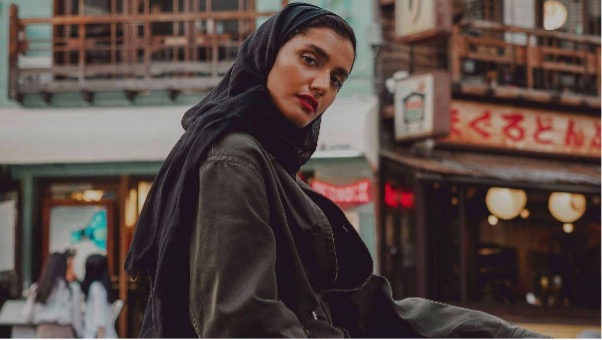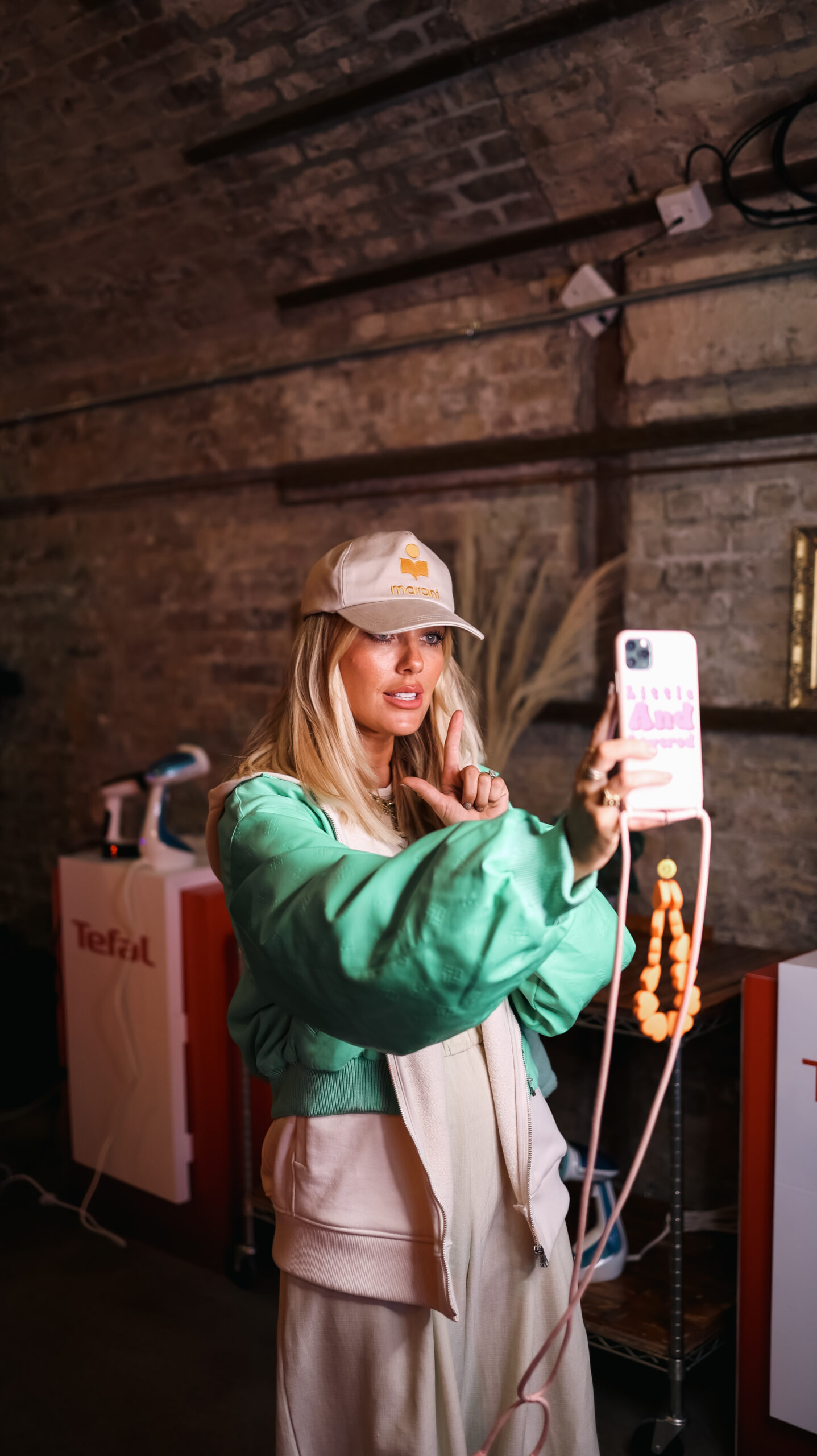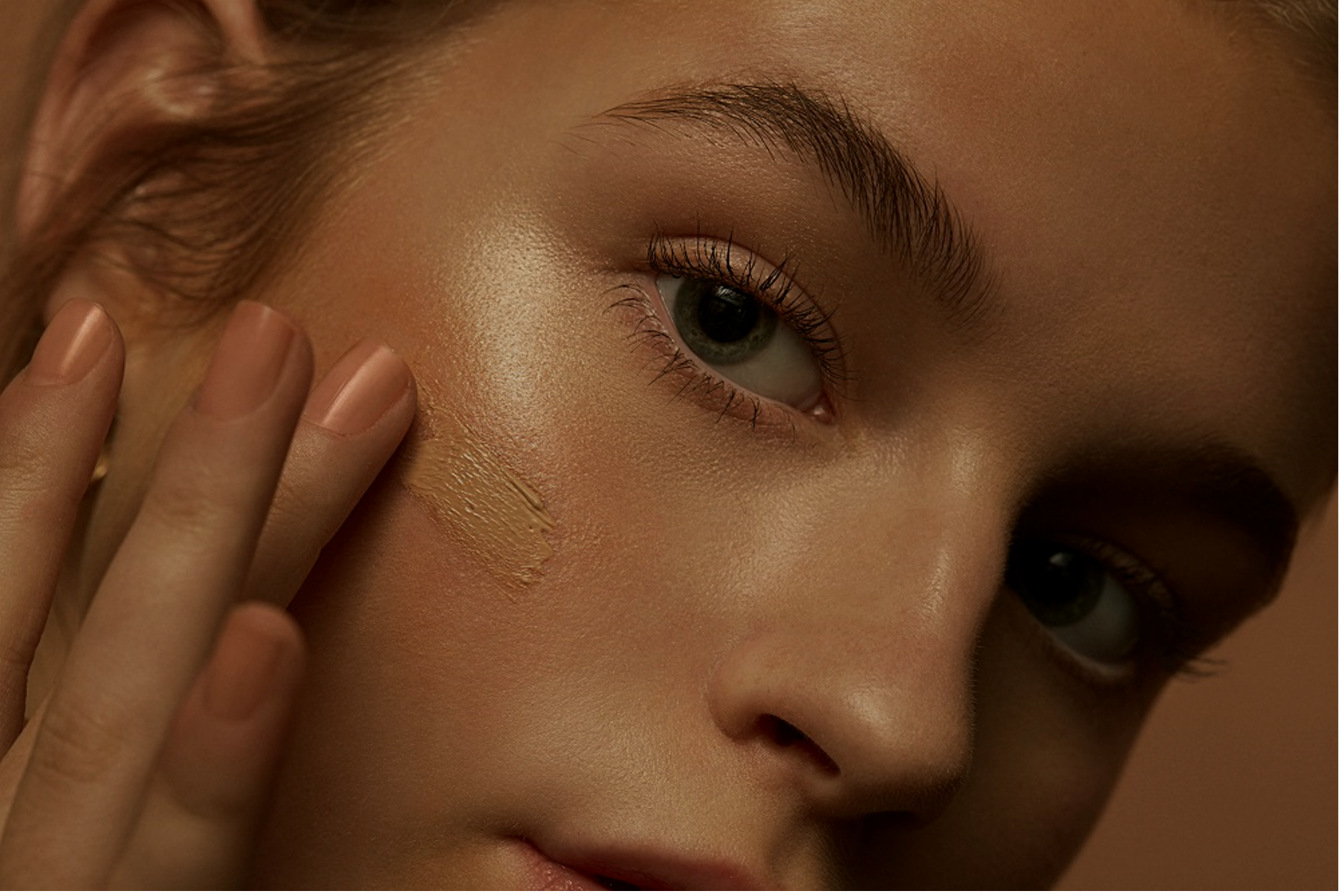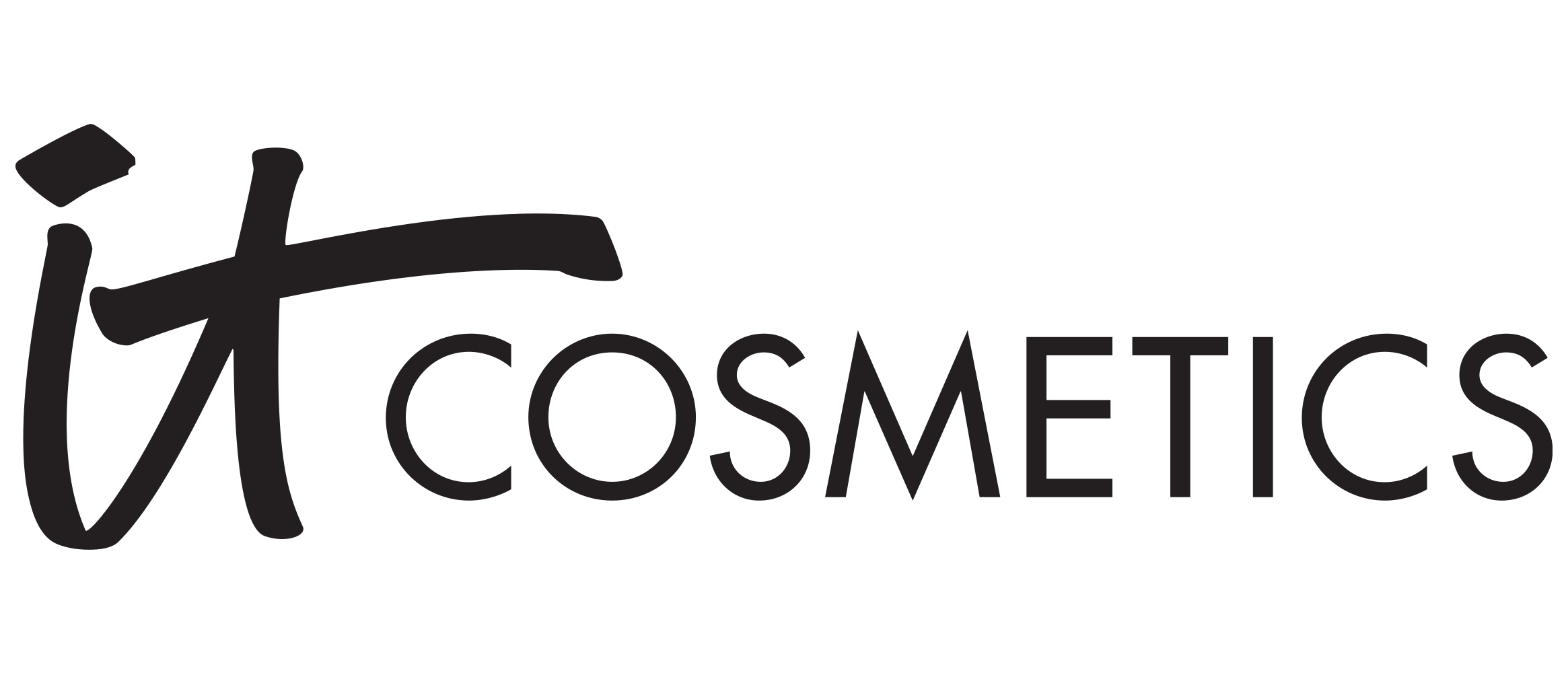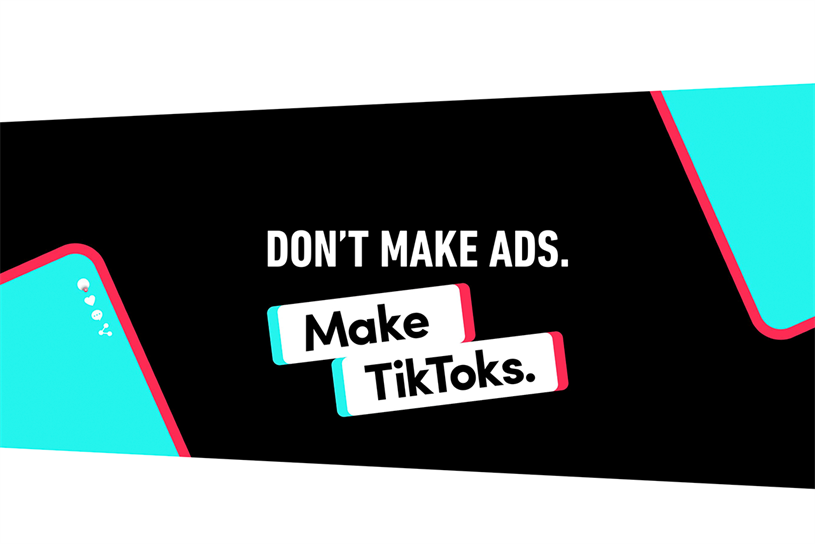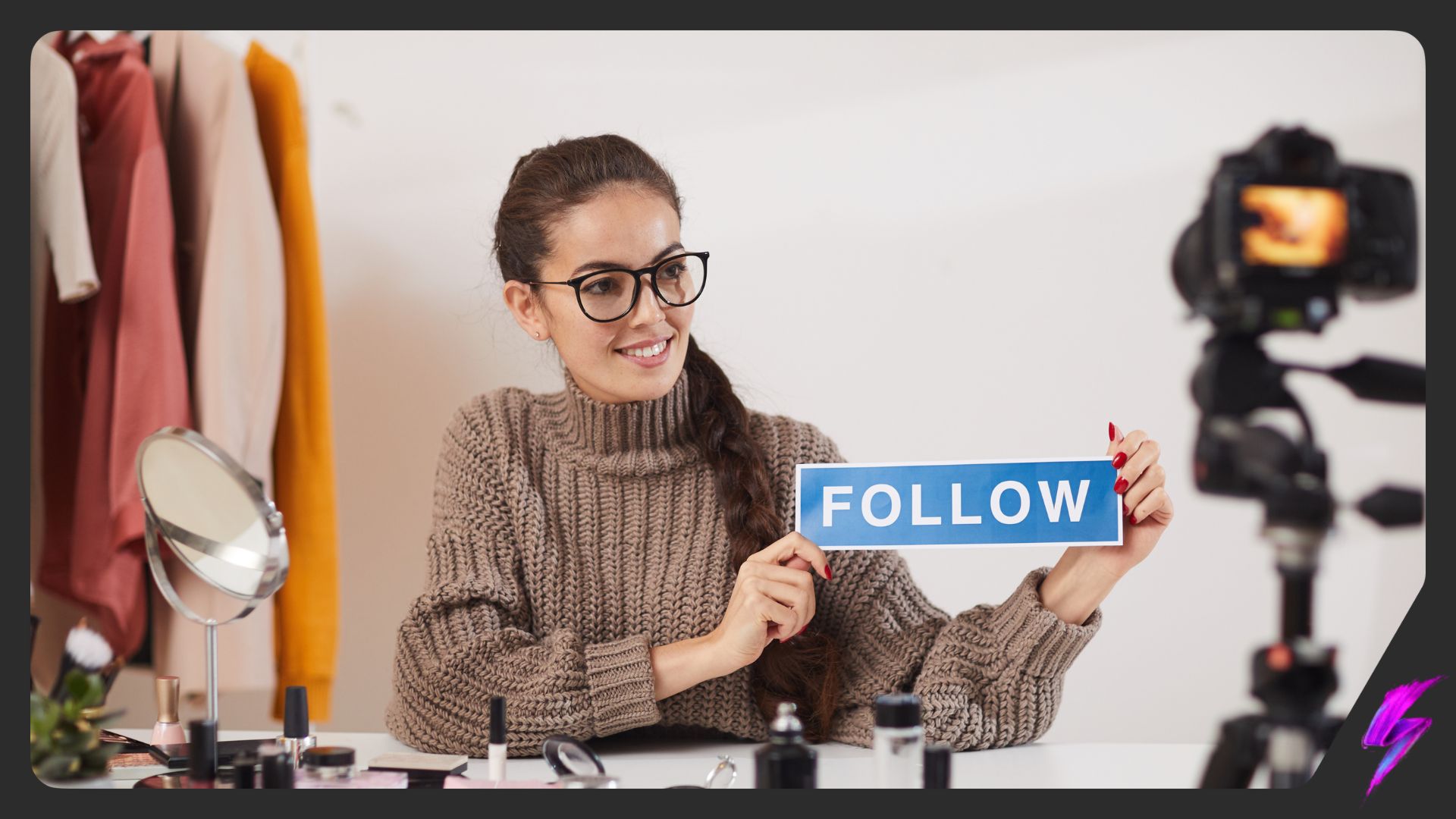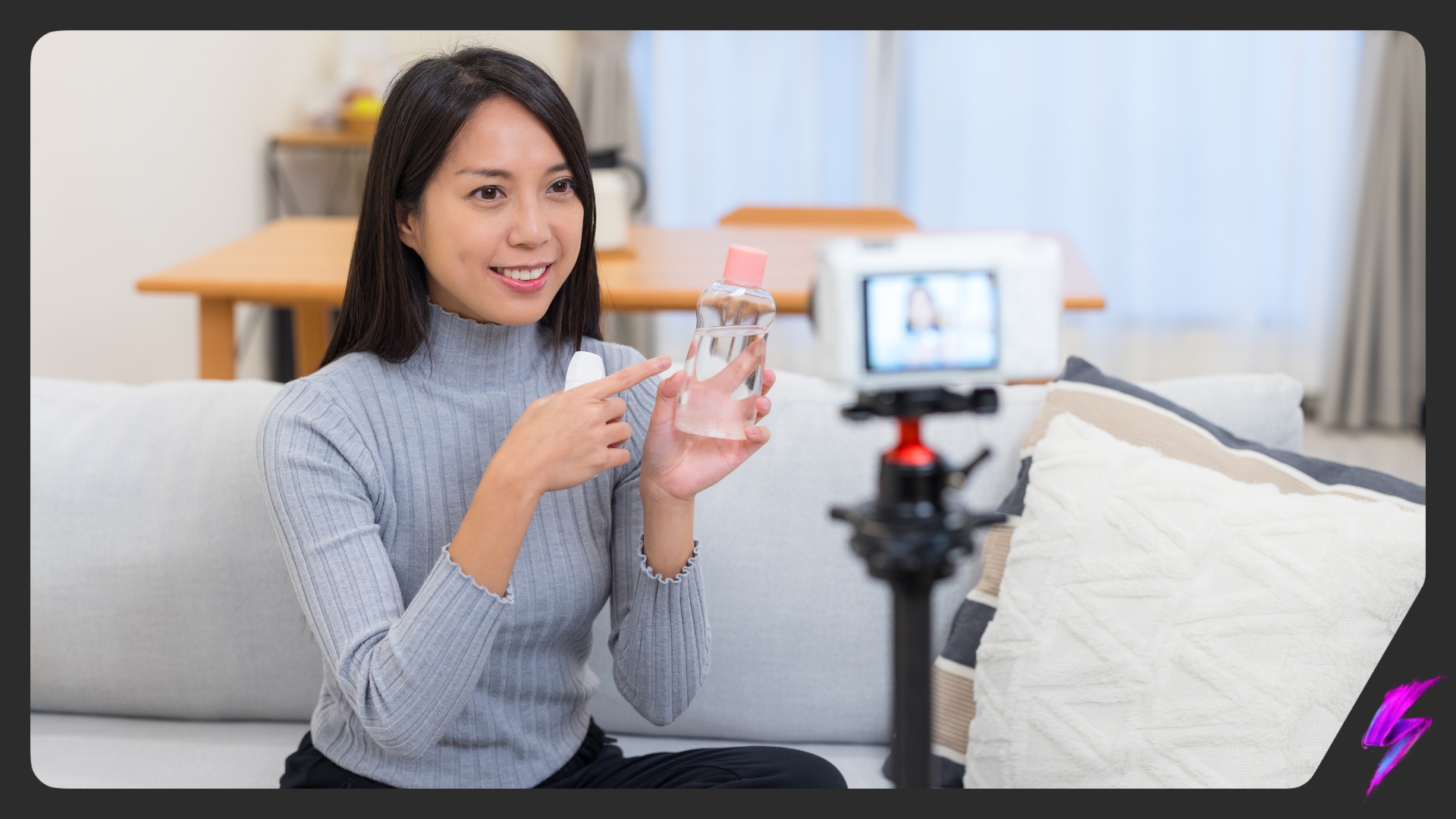Influencer Marketing: How It Works, Importance, Applications, Types, Benefits and Trends



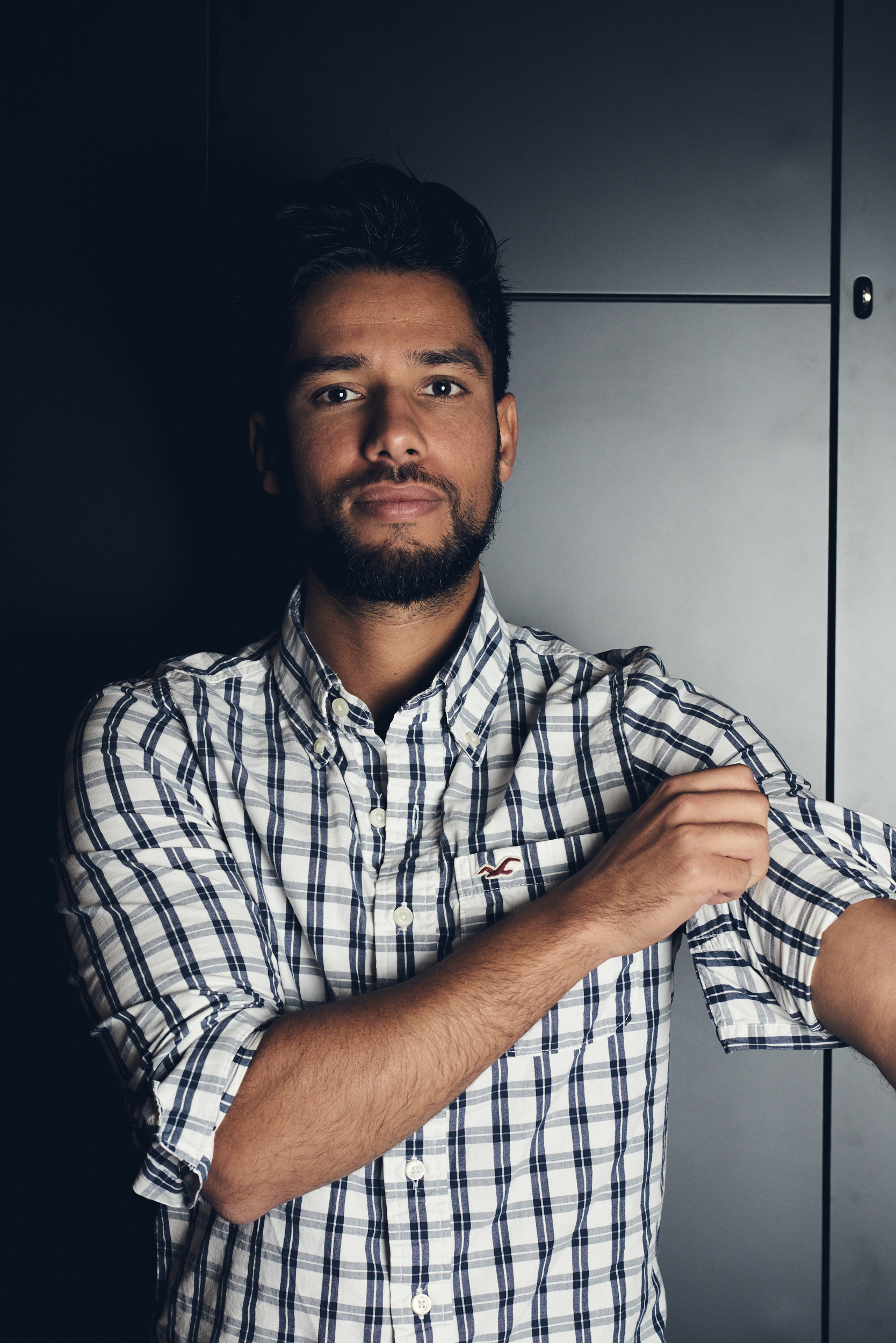



Influencer marketing is the form of advertising where brands collaborate with individuals who hold influence over specific audiences to promote products or services and expand reach. Influencers act as trust signals which give brands access to highly engaged audiences and help them overcome resistance to traditional advertising.
Influencer marketing relies on audience research, influencer identification, structured content production, and measuring return on investment (ROI) to establish alignment between creator values and brand positioning. Influencer marketing types such as sponsored content, affiliate partnerships, giveaways, product reviews, and social media takeovers are selected based on platform dynamics and conversion objectives.
Successful influencer marketing campaigns include Daniel Wellington achieving global growth through influencer collaborations, Gymshark building its brand with an ambassador-led strategy, and Dunkin’ Donuts partnering with Charli D’Amelio on TikTok to expand its reach.
Influencer marketing helps brands build trust, connect with the right audiences, increase genuine engagement, and boost awareness at a lower cost than traditional advertising. On the other hand, it also brings challenges like misaligned partnerships, unpredictable return on investment, risk to brand reputation, and needing more time, effort, and budget for collaborations with bigger influencers.
Influencer marketing platforms like ARIA, Sprout Social, GRIN, Upfluence, and CreatorIQ help in influencer discovery and campaign management with analytics for measurable results. Influencer marketing agencies such as Socially Powerful, HireInfluence, and Viral Nation offer fully managed and data-driven influencer campaigns for brands that want global audience reach and measurable results.
What Is Influencer Marketing?
Influencer marketing, also known as influence marketing, is a type of social media marketing in which brands collaborate with influencers to promote their products or services through social media platforms like Facebook, Instagram, YouTube, and TikTok. Influencers can be individuals or organizations with a dedicated following and recognized expertise or influence in a specific niche or industry.
Influencers use social media platforms to share content like reviews, tutorials, and unboxing videos that align with audience interests and naturally integrate brands into their lifestyle or expertise. Influencer marketing works because it builds trust and credibility by engaging audiences with recommendations from creators they already follow. This gives brands a versatile channel to communicate their message in a way that feels more authentic than traditional advertising.
Why Is Influencer Marketing Important?
Influencer marketing is important because it helps brands build trust and deliver authentic messages to the right audiences through social media platforms. Influencer marketing is an effective way of promoting brands in a more genuine and relatable way as stated in a 2024 study titled The Growing Importance of Influencer Marketing as a New Tool for Promotion on Social Media.
Influencer marketing gives brands access to niche communities and generates high-quality user-generated content through creator collaborations. It delivers a higher return on investment (ROI) than traditional advertising due to better audience targeting and measurable campaign performance. Influencers foster trust by forming parasocial relationships, where followers see them as credible and relatable friends rather than distant celebrities as mentioned in a 2023 study, Influencer Marketing: Assessing Effectiveness and Exploring Potential Drawbacks in Advertising Strategies.
What Is the Impact of Influencer Marketing on Consumers?
Influencer marketing strongly shapes consumer behavior by influencing purchasing decisions and engagement more effectively than traditional advertising. The authenticity of the message with the influencer’s expertise and trust directly influences the buying behaviors of consumers, as written in a 2023 study by Lou, Chen, and Yuan, Influencer Marketing titled: “How Message Value and Credibility Affect Consumer Trust of Branded Content on Social Media”, published in Frontiers in Psychology.
Influencer content feels relatable and integrated into social media experiences which makes audiences think of it as advice rather than advertising. This authenticity creates emotional connections that drive higher engagement and conversion rates and makes influencer marketing a powerful force in consumer decision-making.
How Does Influencer Marketing Work?
Influencer marketing works through a structured process that starts with setting clear goals and selecting the right influencers. Brands then develop campaign briefs, guide content production, and measure results which helps build trust and reach the right audiences for steady brand growth.
The step-by-step process of influencer marketing is outlined below.
- Define Campaign Objectives: Set clear goals for your influencer marketing campaign by setting specific targets like increasing brand awareness or engagement and improving sales which makes it easier to track the performance.
- Identify Relevant Influencers: Choose influencers who align with your brand by reviewing their audience demographics, engagement patterns, and content style for authentic messaging and deeper brand connection.
- Develop a Campaign Brief: Build a comprehensive influencer marketing campaign brief that specifies deliverables, timelines, messaging guidelines, and compensation to align influencer and brand expectations.
- Execute Content Creation: Execute content creation by making platform-optimized influencer materials such as tutorials, reviews, and lifestyle features to maximize reach and audience engagement.
- Measure Performance and ROI: Track performance metrics like reach, engagement, conversions, and ROI (return on investment) to measure the effectiveness of influencer marketing campaigns to refine future influencer marketing collaborations and scale successful strategies.
What Are the Types of Influencer Marketing?
The types of influencer marketing include sponsored content, product placements, affiliate partnerships, and long-term brand ambassadorships. Other common influencer marketing approaches are giveaways, social media takeovers, and influencer-created reviews which improve content engagement and strengthen community trust.
Influencer marketing campaign types vary based on social media platform, campaign objectives, budget, target audience, and desired results. Instagram campaigns are good for visually driven content and stories, while YouTube campaigns focus on longer-form reviews or tutorials.
Different kinds of influencer marketing are given below.
- Sponsored Content: Sponsored content is used to achieve broader reach with macro and mega influencers to help brands in the lifestyle, fashion, and technology industries. Their credibility builds awareness and trust which makes them valuable for large-scale campaigns.
- Affiliate Marketing: Affiliate marketing uses micro-influencers to drive sales through tracked links for e-commerce, fitness, and beauty brands. This performance-based model provides measurable return on investment (ROI) and cost efficiency.
- Giveaways and Contests: Giveaways and contests are used by nano and micro influencers to increase engagement by hosting prize campaigns. Small to mid-sized brands use these campaigns to increase organic audience and engagement rates that expand their followers with minimal advertising costs.
- Unboxing and Product Reviews: Unboxing and product reviews showcase items through YouTubers or TikTok creators who are popular with tech, beauty, and gaming brands because authentic reviews build trust and influence purchasing decisions.
- Social Media Takeovers: Social media takeovers involve macro influencers temporarily managing a brand’s account to engage audiences with fresh and authentic content. This influencer marketing is widely used in travel and lifestyle sectors as influencers provide new perspectives, strengthen audience trust, and increase visibility.
- Brand Ambassadorships: Brand ambassadorships are done by influencers of all tiers (micro influencers, macro influencers and nano influencers) to build brand authority and loyalty by representing a company in the long term. Luxury, fitness, and beauty brands use this influencer marketing to create deeper consumer trust and stronger brand associations.
- Collaborative Content: Collaborative content involves the brands and influencers working together to co-create influencer marketing campaigns. This influencer marketing is used in fashion, entertainment, and tech industries to create unique storytelling experiences and strengthen brand authenticity.
- Product Placement: Product placement influencer marketing features branded products in the content created by celebrities or mega-influencers to reach broad audiences. Global brands use product placement to improve their brand popularity and stay ahead of the competition.
What Are Some Famous Influencer Marketing Examples?
Some famous influencer marketing examples include Daniel Wellington’s Influencer Strategy, Gymshark’s Ambassador Program, Dunkin’ x Charli D’Amelio, and Topicals’ Inclusive Skincare Marketing. La Roche-Posay’s TikTok strategy and Coca-Cola’s #ShareACoke campaign are also famous case studies because they achieved higher conversions and long-term consumer trust.
Popular influencer marketing campaigns that drove success for famous brands are given below.
- Daniel Wellington’s Influencer Strategy: Daniel Wellington’s influencer marketing strategy achieved a 214% revenue increase in one year by using influencer-driven discount codes that accounted for 15 to 20% of total sales. Daniel Wellington’s Instagram following expanded from 100,000 to 4 million in three years which positioned the brand as a pioneer in influencer-led growth.
- Gymshark’s Ambassador Program: Gymshark’s ambassador program achieved consistent sales growth with ambassador-led campaigns that generated a 3 to 5 times return on ad spend (ROAS). Their approach outperformed traditional paid ads due to higher engagement and lower customer acquisition costs.
- Dunkin’ x Charli D’Amelio: Dunkin’s influencer marketing collaboration with Charli D’Amelio created a Gen Z led viral campaign which resulted in a 57% increase in app downloads on launch day and a 45% rise in cold brew sales within two days.
- Topicals’ Inclusive Skincare Marketing: Topicals hosted an inclusive influencer marketing trip with 12 Black, Indigenous, and People of Color (BIPOC) creators. Their initiative strengthened Topicals’ community-led brand identity and sparked highly positive social media engagement.
- La Roche-Posay’s TikTok Strategy: La Roche-Posay ran TikTok and Instagram campaigns that featured educational content and influencer storytelling through initiatives like Club La Roche-Posay which increased brand trust and engagement among health-conscious consumers.
- Coca-Cola’s #ShareACoke Campaign: Coca-Cola’s #ShareACoke campaign drove 500,000+ tagged photos and reversed declining sales with a 2% U.S. sales increase. Their campaign generated 998 million Twitter impressions which made it one of Coca-Cola’s most impactful marketing attempts.
What Are the Benefits of Influencer Marketing?
The benefits of influencer marketing include building trust and credibility, reaching target audiences, and generating authentic engagement. It also strengthens brand awareness and provides cost-effective marketing for brands that want to increase sales or expand into specific niche markets.
The benefits of influencer marketing are given below.
- Builds Trust and Credibility: Influencers build trust and credibility by sharing authentic content, which helps shape positive perceptions of the brands they endorse. Their credibility transfers to partnered brands which makes audiences more receptive than with traditional advertising.
- Reaches a Targeted Audience: Influencer marketing lets brands connect with targeted audiences who have interest in the brand’s products or services. This increases the chances of conversions and long-term engagement.
- Generates Authentic Engagement: Influencer marketing generates authentic engagement by influencer-led content that drives higher interaction through comments, shares, and saves. These organic conversions strengthen customer relationships and expand campaign reach.
- Strengthens Brand Awareness: Influencer marketing improves brand awareness through collaborations that increase visibility across multiple platforms. This consistent exposure to engaged communities improves brand credibility and improves brand image in competitive markets.
- Delivers Cost-Effective Marketing Results: Influencer marketing delivers cost-effective marketing results by partnering with nano and micro-influencers. They generate high engagement rates which allows smaller brands to compete in the market without spending high advertising costs.
What Are the Drawbacks of Influencer Marketing?
The drawbacks of influencer marketing include high misalignment risk, unpredictable ROI, potential brand reputation damage, strong management demands, and increasing collaboration costs which affect scalability and campaign profitability for brands with smaller budgets.
The disadvantages of influencer marketing are given below.
- High Risk of Misalignment arises when influencers’ values or audience do not align with the brand which leads to messaging conflicts and reduced engagement with potential credibility loss.
- Unpredictable Return on Investment (ROI) causes changing audience behavior, evolving algorithms, and variable content reception that results in inconsistent returns like traditional advertising.
- Potential Damage to Reputation when influencers face controversy or negative publicity because audience perception often extends to associated brands. Careful monitoring of influencer conduct helps protect brand image from potential reputational damage.
- High Effort for Management: Management effort increases when multiple influencers are coordinated by creating campaign briefs and analyzing performance metrics, especially for large-scale or multi-platform influencer marketing campaigns.
- High Cost of Collaboration: Collaboration with macro and mega influencers results in high costs due to expensive sponsorships for production or fees and long-term influencer partnerships without guaranteed return on investment (ROI).
What Are the Most Popular Platforms for Influencer Marketing?
The most popular platforms for influencer marketing are ARIA, Sprout Social, GRIN, Upfluence, and CreatorIQ because they simplify influencer discovery and streamline campaign management with deepened insight into performance across social media platforms.
Some famous influencer marketing platforms are given below.
- ARIA is an influencer marketing platform that offers free AI-powered access to over 200 million influencer profiles which enables precise influencer matching and campaign visualization for ROI forecasting.
- Sprout Social is a social media management suite used by leading brands like Microsoft and Uber that integrates with major platforms to enhance scheduling, listening, and analytics.
- GRIN is an e-commerce brand’s influencer marketing platform that integrates with tools like Shopify to track influencer-driven conversions and streamline campaign execution for measurable results.
- Upfluence is an influencer marketing platform used by direct-to-consumer brands for influencer discovery and content performance tracking with integrated systems for advanced campaign management.
- CreatorIQ is an enterprise-grade influencer marketing platform for global brands that offers influencer relationship management and campaign analytics with cross-platform data integration.
What Are the Latest Trends in Influencer Marketing?
The latest trends in influencer marketing for 2025 include authenticity, AI integration, micro or nano influencers, and omnichannel campaigns which increase audience trust, increase effectiveness, expand reach through niche communities, and ensure consistent brand messaging across multiple platforms.
Current influencer marketing trends are described below.
- Nano and Micro-Influencers: Nano and micro-influencers with fewer than 10,000followers give high engagement and niche community trust which helps brands to create authentic partnerships and cost-efficient campaigns.
- AI-Driven Influencer Marketing: AI platforms streamline influencer selection and campaign analysis which helps brands form data-backed partnerships and reduce risks of fake metrics or misalignment.
- Cross-Platform Marketing: Cross-platform campaigns integrate Instagram, TikTok, YouTube, podcasts, newsletters, and offline events for consistent messaging and maximum audience impact.
- Authentic Storytelling and Organic Content: Authentic storytelling replaces polished content with influencers’ personal interests and values which increases trust and deepens audience engagement.
- B2B Influencer Expansion: B2B influencer marketing uses LinkedIn and other professional platforms to build authority through partnerships with industry experts and executives.
- Long-Term Partnerships: Long-term influencer collaborations build brand loyalty, deeper content integration, and sustained audience trust compared to one-off campaigns.
- Employee-Generated Content (EGC) and Customer Advocacy: Employee and customer advocacy in content improves campaign authenticity and increases brand reach through trusted and relatable voices.
What Are the Best Practices in Influencer Marketing?
The best practices in influencer marketing are setting clear goals, identifying right influencers, developing long-term relationships, and creating effective strategies. Being transparent, giving freedom to creators, making authentic content, and measuring ROI to optimize continuously guarantees that influencer marketing campaigns build trust and deliver growth.
Some proven influencer marketing methods are mentioned below.
- Set Clear Goals: Set measurable influencer marketing goals such as revenue growth, website traffic, or brand awareness before launch to help in content planning and ROI tracking.
- Identify Right Influencers: Identify the right influencers to increase targeting precision, engagement quality, and conversion potential by matching audience demographics and content style.
- Develop Long-Term Partnerships: Develop long-term partnerships for a strong relationship with influencers to negotiate costs and maintain consistent messaging to build brand credibility.
- Create an Effective Influencer Marketing Strategy: Create an effective influencer marketing strategy through research-driven planning and strategic platform selection to maximize reach and budget efficiency.
- Transparency and Disclosure: Brands should be transparent and provide disclosure in their influencer marketing posts. This ensures compliance with advertising regulations which builds audience trust and protects brand reputation by validating influencer recommendations.
- Creative Freedom: Brands should give creative freedom to influencers which preserves content authenticity and drives organic engagement by making stronger connections with audiences.
- Authentic Content: Brands should make authentic content based on storytelling and real experiences which strengthens emotional resonance by shaping consumer perception and purchase decisions.
- Measure ROI and Optimize Continuously: Brands should measure ROI and optimize influencer marketing campaigns continuously for improvements and evolve campaigns based on reliable performance metrics.
What Are Some Influencer Marketing Mistakes That Brands Make?
Some influencer marketing mistakes that brands make are selecting the wrong influencers, lacking clear goals, ignoring content authenticity, neglecting longer influencer relationships, failing to track ROI, focusing only on follower size, and ignoring micro- and nano-influencers which limits engagement and brand reach.
Common influencer marketing mistakes made by brands are given below.
- Poor Influencer Selection weakens engagement and wastes resources because misaligned collaborations damage brand perception and campaigns fail to reach intended demographics effectively.
- Lack of Clear Campaign Goals makes ROI measurement and strategic decisions difficult because brands lose focus by struggling to track performance and demonstrate campaign value.
- Ignoring Content Authenticity reduces influencer credibility as overly scripted promotions feel forced which weakens trust and limits campaign impact.
- Neglecting Long-Term Relationships increases costs and prevents strong brand-influencer bonds while long partnerships deliver the message and improve audience loyalty.
- Failure to Track ROI limits data-driven decisions as brands cannot justify budgets or refine strategies without accurate Key Performance Indicator (KPI) measurement.
- Focusing Only on Follower Size results in mismatched partnerships and poor campaign results if the influencer’s audience is not aligned with the brand.
- Ignoring Micro and Nano Influencers results in missed opportunities for brands to engage niche audiences that generate authentic conversations and conversions.
What Are Some Top Influencer Marketing Agencies?
Some top influencer marketing agencies include Socially Powerful, Viral Nation, Obviously, and HireInfluence, because of their strategic creativity and proven influencer campaigns that deliver high ROI and fast growth.
Some of the best influencer marketing agencies are given below.
- Socially Powerful is an award-winning social media and influencer marketing agency in London that specializes in viral influencer campaigns and delivers high return on investment (ROI). Socially Powerful partners with brands such as Red Bull and TikTok to create high-impact social and influencer campaigns.
- Viral Nation is a global leader among influencer marketing agencies that combines influencer talent management with campaign strategy. This agency uses AI-powered insights to manage large influencer networks for brands like Apple and Twitch.
- Obviously is a digital influencer marketing agency known for precise targeting and proprietary analytics in managing large-scale campaigns for global brands such as Google, Sephora, and L’Oréal.
- The Goat Agency is an award-winning social media influencer marketing agency with offices in New York, London, and Singapore that is known for transparent planning, data-driven ideation, and measurable results for clients like Dell and Audi.
- HireInfluence is an influencer marketing agency that designs tailored, intent-driven campaigns by hand-picking influencers to ensure authentic brand alignment. This agency has partnered with companies such as MTV and Southwest Airlines.
What Is an Influencer Marketing Campaign?
An influencer marketing campaign is a strategic form of advertising where brands collaborate with influencers to promote products or services through authentic and engaging content. Influencer marketing campaigns involve setting measurable objectives, identifying suitable influencers, developing a structured brief, managing content production, and evaluating results through engagement metrics and return on investment (ROI).
Influencer marketing campaigns use influencers’ credibility and audience trust to deliver targeted messaging more effectively than traditional advertising. Influencer marketing campaign formats include sponsored content, affiliate promotions, giveaways, product reviews, social media takeovers, brand ambassadorships, collaborative content, and product placements. Each influencer campaign aligns with specific objectives such as sales growth, brand awareness, and higher engagement which helps brands build measurable, platform-specific connections with their target audience.
What Makes a Successful Influencer Marketing Campaign?
A successful influencer marketing campaign combines clear goals, the right influencer fit, authentic content, and measurable results to drive genuine engagement and ROI. Brands should select influencers whose audience aligns with their target market and maintain transparent communication with them to focus on quality content over volume.
How to Build an Effective Influencer Marketing Strategy?
The step-by-step process to build an effective influencer marketing strategy is described below.
- Define campaign objectives by setting measurable goals such as increasing brand awareness, driving sales, or improving engagement metrics.
- Identify the right influencers based on audience demographics and brand alignment for maximum campaign impact to strengthen audience trust.
- Set a budget by allocating funds for influencer fees, content production, and ad boosts to achieve the best results in a cost-effective way.
- Create a detailed campaign brief with brand guidelines, messaging requirements, deliverable timelines, and content approval to ensure on-brand content.
- Choose the right platforms by matching content formats with audience preferences such as Instagram for visuals, TikTok for trends, or YouTube for tutorials.
- Focus on long-term partnerships by building ongoing relationships with influencers to improve authenticity and enhance audience trust.
- Track and optimize performance using campaign data, adjusting strategies, and reinvesting in top-performing influencers for continuous improvement.
How to Track Your Influencer Marketing Campaigns?
The steps to track your influencer marketing campaigns are given below.
- Establish key performance indicators by defining measurable results such as reach and conversions based on campaign objectives.
- Monitor results using analytics tools like Instagram Insights, TikTok Analytics, YouTube Studio, and Twitter Analytics to track engagement in real time.
- Leverage influencer marketing platforms such as Aria, Aspire, or Traackr to streamline performance tracking, influencer management, and campaign oversight.
- Track clicks and conversions with Urchin Tracking Module (UTM) codes, affiliate links, and promo codes to directly measure audience actions tied to campaign content.
- Measure sentiment and brand mentions by monitoring social conversations and audience feedback to evaluate brand perception and campaign impact.
- Analyze return on investment (ROI) by comparing campaign costs to revenue generated by enabling data-driven decisions and optimizing future investment.
- Generate detailed reports for strategy adjustments and continuous improvement using influencer performance, engagement trends, and campaign effectiveness.
How Do Brands Measure the Success of Influencer Marketing Campaigns?
Brands measure the success of influencer marketing campaigns by analyzing key metrics like engagement, reach, click-through rate (CTR), link clicks, website views, time on site, and pages per session. These influencer marketing metrics calculate a campaign’s impact on brand awareness and conversions which helps in budget allocation toward high-performing influencers and optimizing ROI through continuous audience refinement.
What Are Influencers?
Influencers are individuals or celebrities with strong credibility and large social media audiences that shape consumer perceptions and purchasing behavior through authentic content. Influencers maintain loyal communities and act as trusted authorities within their niches. Fashion influencers, including Chiara Ferragni and Aimee Song, showcase style expertise and introduce trends. Fitness influencers such as Kayla Itsines and Joe Wicks provide health-focused content and training programs. Gaming influencers like Ninja (Tyler Blevins) and Pokimane lead live-streaming communities and engage fans through interactive gameplay. Technology influencers like Marques Brownlee (MKBHD) deliver in-depth product analysis and reviews. Beauty influencers such as Huda Kattan and James Charles produce tutorials and trend-driven campaigns. Travel influencers Jack Morris and Lauren Bullen highlight destinations and create aspirational lifestyle content.
What Are the Different Types of Influencers?
The different types of influencers are listed below.
- Nano Influencers
- Micro Influencers
- Macro Influencers
- Mega Influencers
What Are Nano Influencers?
Nano influencers are social media creators with 1,000 to 10,000 followers who have highly engaged niche communities and deliver authentic product recommendations.
What Are Micro Influencers?
Micro influencers are creators with 10,000 to 100,000 followers and deliver strong engagement with targeted reach for brands that want credibility.
What Are Macro Influencers?
Macro influencers are social media creators with 500,000 to 1 million followers or subscribers who generate strong engagement and provide targeted reach for brands aiming to build credibility.
What Are Mega Influencers?
Mega influencers are celebrities or high-profile social media creators with over 1 million followers who provide global reach and maximize brand visibility through mass exposure.
What Is the Difference Between Influencer Marketing and Celebrity Endorsements?
The difference between influencer marketing and celebrity endorsements is the source of influence and audience connection. Influencer marketing focuses on creators who build influence through niche expertise and audience trust for community-driven engagement while celebrity endorsements rely on fame and mass recognition for broad visibility without personalized audience connections.
What Are the 3 R’s in Influencer Marketing?
The 3 R’s of influencer marketing are relevance, reach, and resonance. They measure how closely influencers align with a brand’s values, the size of their audience, and their ability to drive meaningful engagement and impact.
What Are the 4 M’s of Influencer Marketing?
The 4 M’s of influencer marketing are Make, Manage, Monitor, and Measure. They cover campaign creation, influencer relationship management, real-time campaign tracking, and performance evaluation to optimize future marketing strategies for measurable success.
How Much Does Influencer Marketing Cost?
Influencer marketing costs vary by influencer tier, content type, and platform. Nano influencers charge $10 to $100 per post, micro influencers charge $100 to $500, mid-tier influencers charge $500 to $5,000, and mega influencers charge more than $10,000 per post. Their prices depend on campaign goals, exclusivity, content rights, and overall influencer marketing campaign complexity.
We'll show you how to start powerful conversation, drive social engagement, build your brand, hit sales targets or meet other goals you have, wherever you are in the world.
Work with us







